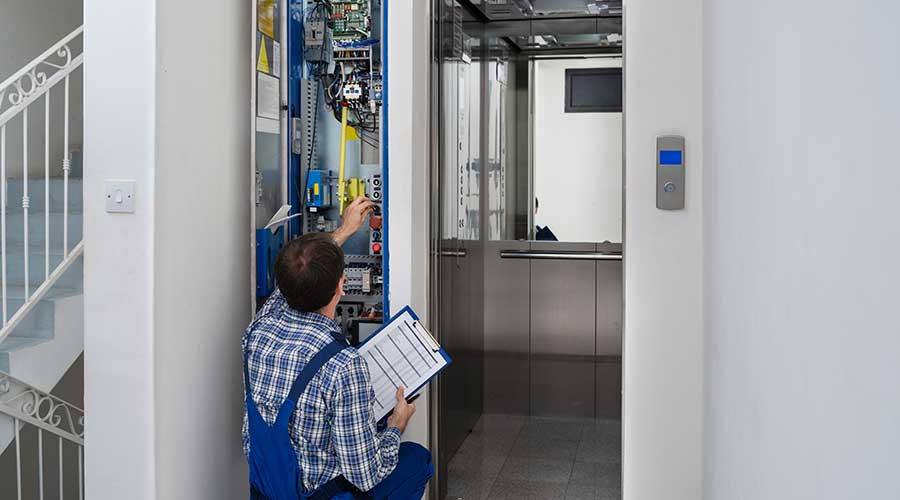In hospitals and other healthcare facilities, every second counts. When transporting a patient to different floors, an elevator malfunction or delay could cost someone his or her life. It is important that facilities managers schedule regular maintenance on elevators to ensure they are always working up to standard. More facilities are beginning to have an elevator technician on site in order to better prevent emergencies. Healthcare Facilities Today talks with elevator manufacturers on why elevator technicians are considered must-haves.
Why should healthcare facilities have an elevator technician on staff?
“In hospital environments where every second counts, having an onsite technician can make a big difference. It is perfectly acceptable for hospitals with a smaller elevator portfolio to utilize an offsite technician who makes routine stops at the facility, but for hospitals with an extensive elevator portfolio, especially ones in older buildings with older units that are more prone to breakdowns or issues, it is recommended to have an onsite technician ready to assist. Elevator maintenance of any kind should never be performed by non-elevator personnel. This short-term approach can lead to long-term issues with the equipment that put people at risk. This also includes insurance claims if there is a personal injury due to an elevator incident.”
— Kevin Robertson, executive vice president of sales, North America, TK Elevator
“We do not necessarily advise facilities to have elevator technicians on their staff. Instead, we recommend you contract with a qualified elevator service company to perform elevator maintenance. Elevator service companies have elevator technicians and other troubleshooters that can work through most issues. A qualified service company will also have an engineering team on-hand to reinforce the technician on best practices, repairs and troubleshooting. Elevator service companies are obligated to stay current on code requirements and code changes, a responsibility that may be a challenge for a field technician. Also, licensed and trained elevator technicians should do any work directly performed on elevators. Elevators have many life-safety operations, and improper actions by someone not fully licensed and trained could result in serious injury of passengers or others.”
— Bruce L. Peterson, director of sales and commercial strategy, Mitsubishi Electric US - Elevator/Escalator Division
“Safety is the number one concern. Any personnel servicing equipment needs specialized training and to ensure passenger safety and the person maintaining the equipment. Elevator companies have service programs that include highly trained technicians who have the expertise, training, parts on hand. It is also imperative that any service partner have a 24/7 call center (records all calls) with trained call agents for any entrapments or safety issues and can mobilize support any day at any time. These resources and elements are very difficult for facilities managers to employ and manage locally.”
— Bruce Norden, vertical market business director service business, KONE Americas
Mackenna Moralez is the associate editor of the facility market.

 Healthcare and Resilience: A Pledge for Change
Healthcare and Resilience: A Pledge for Change Texas Health Resources Announces New Hospital for North McKinney
Texas Health Resources Announces New Hospital for North McKinney Cedar Point Health Falls Victim to Data Breach
Cedar Point Health Falls Victim to Data Breach Fire Protection in Healthcare: Why Active and Passive Systems Must Work as One
Fire Protection in Healthcare: Why Active and Passive Systems Must Work as One Cleveland Clinic Hits Key Milestones for Palm Beach County Expansion
Cleveland Clinic Hits Key Milestones for Palm Beach County Expansion